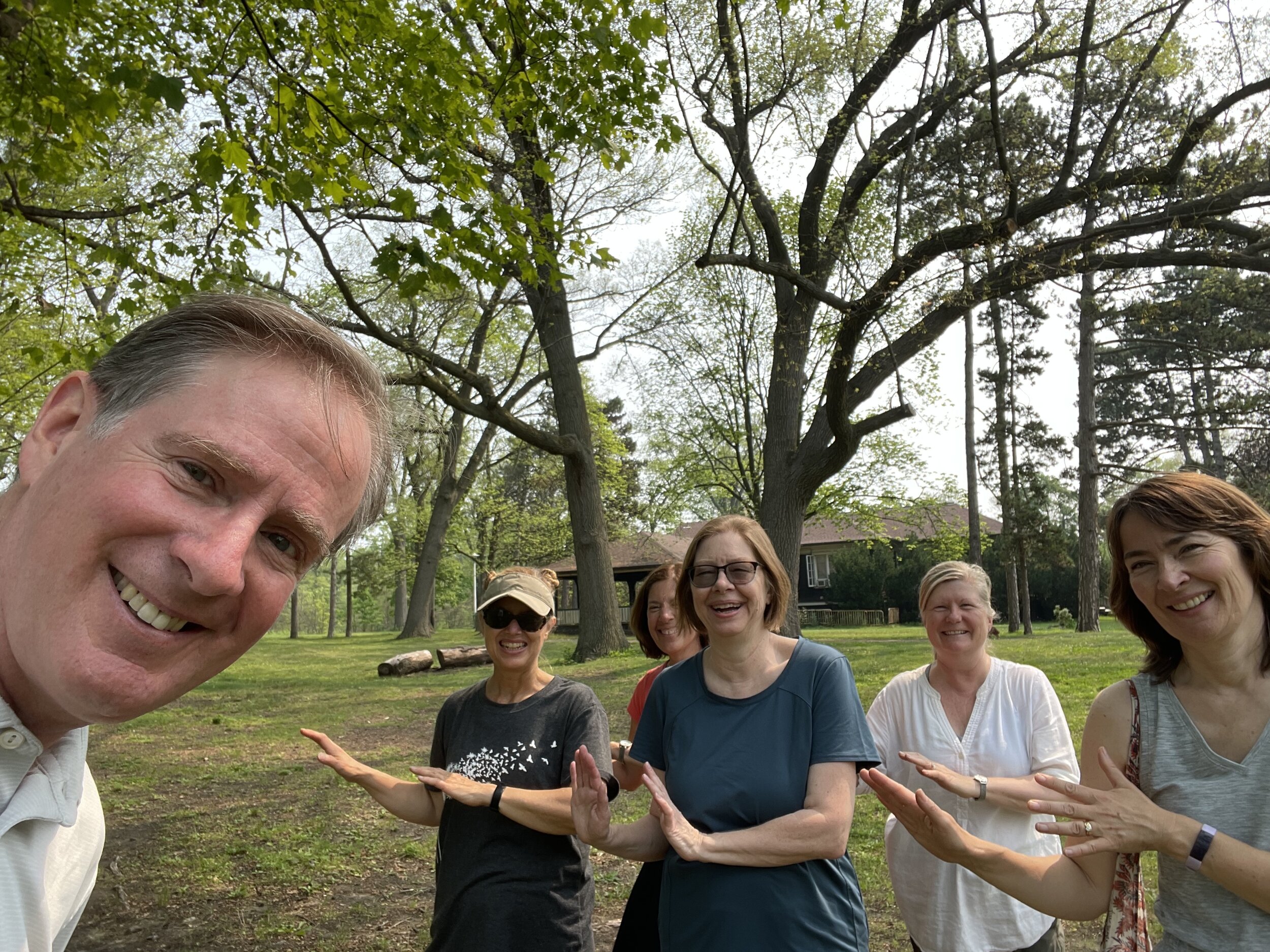Mindful movement to support a global cause
During the coronavirus pandemic, many of us have spent increasing amounts of time in front of our computer screens, whether working from home or attending zoom meetings. For some, this may lead to fatigue, neck tightness, weight gain, or a lost sense of connectedness to their body.
World Spine Care Canada board member and Vice President, Dr. David Gryfe, has applied his knowledge of and passion for T’ai Chi to provide an opportunity for friends, patients, and anyone interested to get in touch with their bodies through mindful movement.
T’ai Chi is a traditional martial art developed in China with an emphasis on slow, mindful movements. Practitioners focus on coordination and relaxation, rather than forceful movements from tense muscles.
Some research shows that T’ai Chi can help improve physical performance and prevent falls in older adults. It may also reduce the effects of stress by lowering blood pressure and decreasing pain for some people.
“As I have benefitted from the practice for 30 years, I feel it is a privilege to pass it on to others for the purpose of improving spine health one student at a time.”
After the pandemic set in, Dr. Gryfe was asked if he would provide a few classes in an open area for friends and patients in search of ways to increase their movement and address aches and pains while at home. Pretty soon, the classes grew and participants wondered how they could show their appreciation. Dr. Grye suggested they make a donation to World Spine Care.
We recently checked in with Dr. Gryfe to learn more about his T’ai Chi classes which have raised over $2,000 for World Spine Care.
World Spine Care: When/why did you personally start practicing T'ai Chi?
Dr. Gryfe: I started in 1991, to learn from Dominic Fung at a local Toronto Public School in a city-run program.
What led to starting a T'ai Chi class during the pandemic?
I have taught T’ai Chi for many years in many different locations including the Etobicoke General Hospital, local gyms and churches, and even on the rooftop of the Old Mill Condominium. One of my patients asked me if I would teach in High Park at the beginning of the pandemic because a good friend of hers had been in a motor vehicle accident and she wondered if it would help to reintegrate her vestibular system as she was experiencing a lot of instability.
As I learned for no cost and have benefitted from the practice for 30 years, I feel it is a privilege to pass it on to others for the purpose of improving spine health one student at a time.
How does it work… How often do you meet? Have you tried online or only in a park? How long is the class? Who can attend? etc.
The class is open to anyone who is interested in giving it a try. We meet weekly when pandemic restrictions allow. I have taught classes online during the pandemic to 2 different groups as an introduction to the art. It is a slow movement that emphasizes accuracy and memory of 108 complex movements. It is sometimes called moving meditation. There is also a martial arts aspect to T’ai Chi that is not always obvious to the casual observer.
What benefits have participants reported?
I have seen very disabled people regain mobility and confidence. I have also seen a severely affected person with Parkinson’s improve his balance and coordination. The person with the whiplash injury and vestibular issues has now fully recovered with the help of these classes.
“So happy to be back in the park practicing Tai Chi with you all! Thank you, David, for this act of teaching generosity and community spirit.”
How does T'ai Chi align with the mission and goals of World Spine Care?
T’ai Chi emphasizes the integration of the body. The movement of the spine is integral to all that T’ai Chi offers. As a result there is a perfect alignment with the goals of WSC to improve global spine health. Balance, focus and coordination are essential tools for good spine function and this form of exercise is perfectly suited to nurture these abilities.
How can someone learn more about the classes?
The best way to join the class would be to contact Deb Moffett who organizes the schedule.


